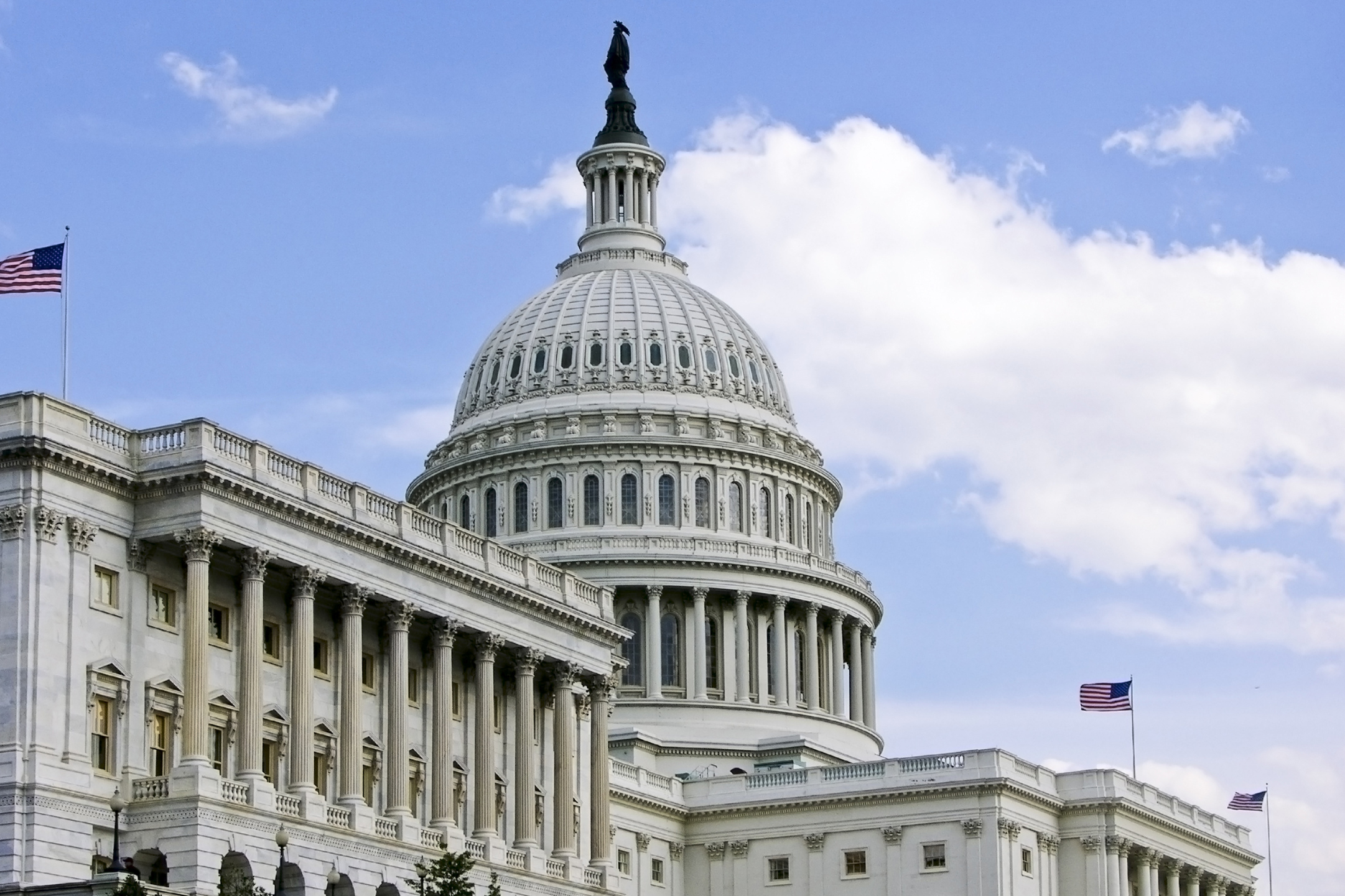Why the CISA amendment further erodes our right to privacy
Increasingly, governments are becoming the enemies of data protection


A much-debated amendment to the 'Cybersecurity Information Sharing Act' (CISA) is splitting US authorities and the country's technology giants.
Last night the amendment passed through the first stages of a US Senate voteby 83 to 14, and if it passes a full Senate vote next week it will allow US courts to pursue foreign nationals accused of cybercrimes, even if they were perpetrated against other foreign citizens.
In other words, it considerably lowers the barriers for prosecuting cybercrime committed abroad, and means the US could prosecute anyone who steals data from anyone or any entity, regardless of where that crime occurs or whether a US entity is involved.
Extradition treaties mean that those accused of such crimes could then be brought back to the US to stand trial and face possible jail time.
For many people, including politicians from both sides of the house and a broad sweep of the business community, the amendment is a positive, strengthening IT security.
Within the technology sector, however, the likes of Apple, Dropbox, Facebook, Google, Twitter and the Wikimedia Foundation have revolted against it, citing privacy concerns.
Not all tech companies are convinced that the amendment to CISA will actually improve security and many are concerned about the privacy implications it poses.
Get the ITPro daily newsletter
Sign up today and you will receive a free copy of our Future Focus 2025 report - the leading guidance on AI, cybersecurity and other IT challenges as per 700+ senior executives
Here's the thing - while the internet means we all live in an ever-shrinking world, that does not translate into expanding the scope of national law enforcement and justice. Different countries have widely varying views on what is and isn't suitable punishment to fit a given crime.
This is why it's important to put this US attempt at becoming the world's cyberpolice and cybercourts into perspective: should a German national living in France who hacks the credit card of an Italian citizen be subject to the laws of the US and face prison time there? Most people, I suspect, would think not. People should be prosecuted for their crimes, but the justice they face should be home-grown and not outsourced to another country.
The message from the dissenting tech giants is clear - the sharing of threat data is important but should not be at the expense of users' privacy. The mantra for all companies should be if you can't protect it, don't collect it'.
However, proposed legislation such as CISA in the US and the Snooper's Charter here in the UK move the protection goalposts somewhat. You have to ask yourself the question of who companies be protecting our data from. It's increasingly clear that it's not just the cybercriminals, but governments as well who want our data.
Ironically, given the IT security record of government agencies in the US over the last couple of years, once that information has been passed to them it's probably at greater risk of being hacked.
When it comes to privacy there is little room for much confusion or doubt. This part of the CISA bill should worry anyone: "Cyber threat indicators and defensive measures provided to the Federal Government under this Act shall be deemed voluntarily shared information and exempt from disclosure".
Yep, the Freedom of Information Act would not give anyone the right to know what data had been disclosed or by whom. Few corporates will actually take on 'the powers that be' when push comes to shove, which means that ultimately we can trust nobody but ourselves to protect our data from the grip of government surveillance.
At the end of the day my trust in both government and big business is already at a low, but this bill just drops it further down.
I am always being told whenever I rally against such moves as this that done nothing wrong, nothing to fear'. Well, I prefer to think in terms of done nothing wrong, deserve the right to a little privacy'...
Davey is a three-decade veteran technology journalist specialising in cybersecurity and privacy matters and has been a Contributing Editor at PC Pro magazine since the first issue was published in 1994. He's also a Senior Contributor at Forbes, and co-founder of the Forbes Straight Talking Cyber video project that won the ‘Most Educational Content’ category at the 2021 European Cybersecurity Blogger Awards.
Davey has also picked up many other awards over the years, including the Security Serious ‘Cyber Writer of the Year’ title in 2020. As well as being the only three-time winner of the BT Security Journalist of the Year award (2006, 2008, 2010) Davey was also named BT Technology Journalist of the Year in 1996 for a forward-looking feature in PC Pro Magazine called ‘Threats to the Internet.’ In 2011 he was honoured with the Enigma Award for a lifetime contribution to IT security journalism which, thankfully, didn’t end his ongoing contributions - or his life for that matter.
You can follow Davey on Twitter @happygeek, or email him at davey@happygeek.com.
-
 Why keeping track of AI assistants can be a tricky business
Why keeping track of AI assistants can be a tricky businessColumn Making the most of AI assistants means understanding what they can do – and what the workforce wants from them
By Stephen Pritchard
-
 Nvidia braces for a $5.5 billion hit as tariffs reach the semiconductor industry
Nvidia braces for a $5.5 billion hit as tariffs reach the semiconductor industryNews The chipmaker says its H20 chips need a special license as its share price plummets
By Bobby Hellard
-
 Capita tells pension provider to 'assume' nearly 500,000 customers' data stolen
Capita tells pension provider to 'assume' nearly 500,000 customers' data stolenCapita told the pension provider to “work on the assumption” that data had been stolen
By Ross Kelly
-
 Gumtree site code made personal data of users and sellers publicly accessible
Gumtree site code made personal data of users and sellers publicly accessibleNews Anyone could scan the website's HTML code to reveal personal information belonging to users of the popular second-hand classified adverts website
By Connor Jones
-
 Pizza chain exposed 100,000 employees' Social Security numbers
Pizza chain exposed 100,000 employees' Social Security numbersNews Former and current staff at California Pizza Kitchen potentially burned by hackers
By Danny Bradbury
-
 83% of critical infrastructure companies have experienced breaches in the last three years
83% of critical infrastructure companies have experienced breaches in the last three yearsNews Survey finds security practices are weak if not non-existent in critical firms
By Rene Millman
-
 Identity Automation launches credential breach monitoring service
Identity Automation launches credential breach monitoring serviceNews New monitoring solution adds to the firm’s flagship RapidIdentity platform
By Praharsha Anand
-
 Neiman Marcus data breach hits 4.6 million customers
Neiman Marcus data breach hits 4.6 million customersNews The breach took place last year, but details have only now come to light
By Rene Millman
-
 Indiana notifies 750,000 after COVID-19 tracing data accessed
Indiana notifies 750,000 after COVID-19 tracing data accessedNews The state is following up to ensure no information was transferred to bad actors
By Rene Millman
-
 Pearson fined $1 million for downplaying severity of 2018 breach
Pearson fined $1 million for downplaying severity of 2018 breachNews The SEC found the London-based firm made “misleading statements and omissions” about the intrusion
By Rene Millman